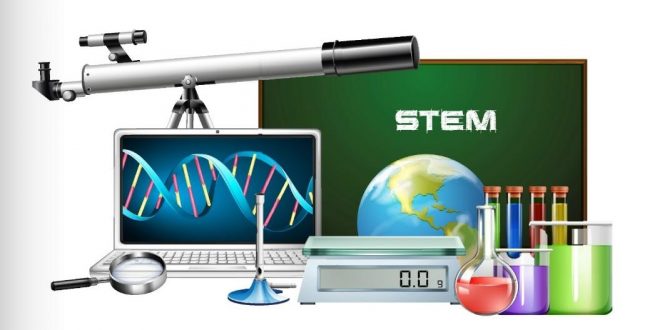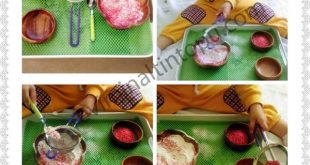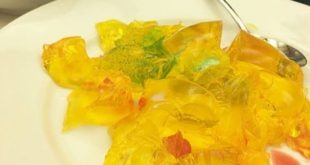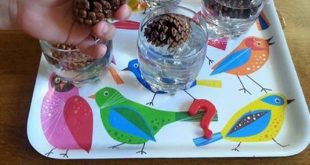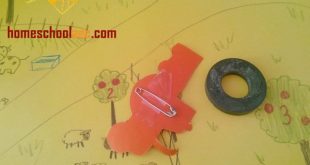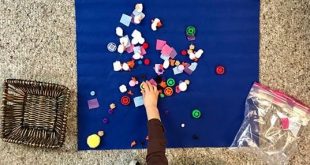Our schools, as much as they could, present STEM learning opportunities as they to our children from the beginning of the school to the end. In this process, the most significant task belongs to the parents.
What is STEM?
STEM is an education approach intended for learning and improving that combines science, technology, engineering and mathematics. In 21th centurey, it takes its place in the education programs of almost every country.
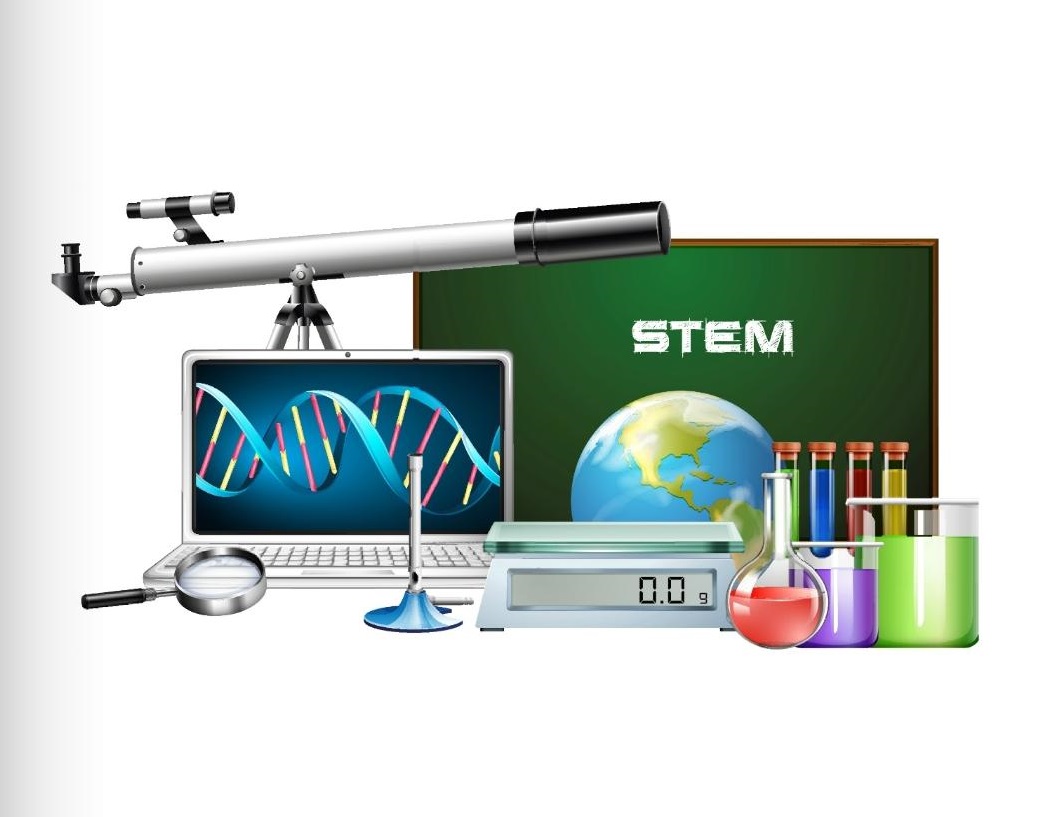
Thanks to STEM, our students develop key skills in various areas such as:
- Problem Solving
- Creativity
- Analysis and Synthesis
- Teamwork
- Independent Thinking
- Wholistic View
- Enterprise
- Communication Skills
- Digital Literacy
- Foresight
- Coding and Algorithm
Why is STEM Important?
Order of the world and global economy are constantly changing. Thanks to various automations, a lot of professions are disappearing and many others are emerging and these changes are happenning every day. For instance,while some professions that are popular before cannot find demand now, some professions with strong perspectives, such as computer and software, construct new business branches.
Constant changes in technology change communcation skills, interactions and learning methods of students. Skills and talents that are developed by students through STEM, show them the way to be successful in and beyond school.
The people profiles that have STEM qualifications are and will always be at the forefront. 75 percent of the jobs in the fastest growing sectors currently require manpower with STEM skills.
STEM makes individuals more strong through skills of being successful and adaptable in the changing world. We, as parents and teachers, provide our children with these devices.
In this page, we will share with you the STEM section of the booklet that is prepared by Sivas National Education Directorate for preschool students. We firstly give our thaks to our teacher Ebubekir Sıddık Savaşçı and his team members for this beautiful work. For viewing further works, please click this link.
For different works, you can take a look at Science and Nature Activities in our website and enjoy dozens of activities we have made available for you.
You can help our children by preparing a home environment that encourage curiosity and questioning to them through games.
By encouraging them, we can help our children be a participant in their own learning and make them understand better the world turning around them. If we ask questions to our children, they can improve their critical thinking skills.
To them:
- Ask questions,
- Present co-studying environments,
- Help improve their problem solving skills
- Make them discover new ways
Activities in this page:
- Match Box
- Basic Rocket Making
- Moving Monkey
- Dancing Pencils
- Cool Fingers
- Rolling Match Box
- Balloon Shooting
Materials and instructions of these STEM activities are in the pictures below. Have fun!
Match Box
What’s in the match box?
How many different things you can put into an ordinary match box? Here are some examples to you:
Seed, paper-clip, toothpick, leaf, nut, needle, stone, rice/lentil, package rubber, rope etc…
The record in this activity is 250 small objects. How many objects can you fit in?
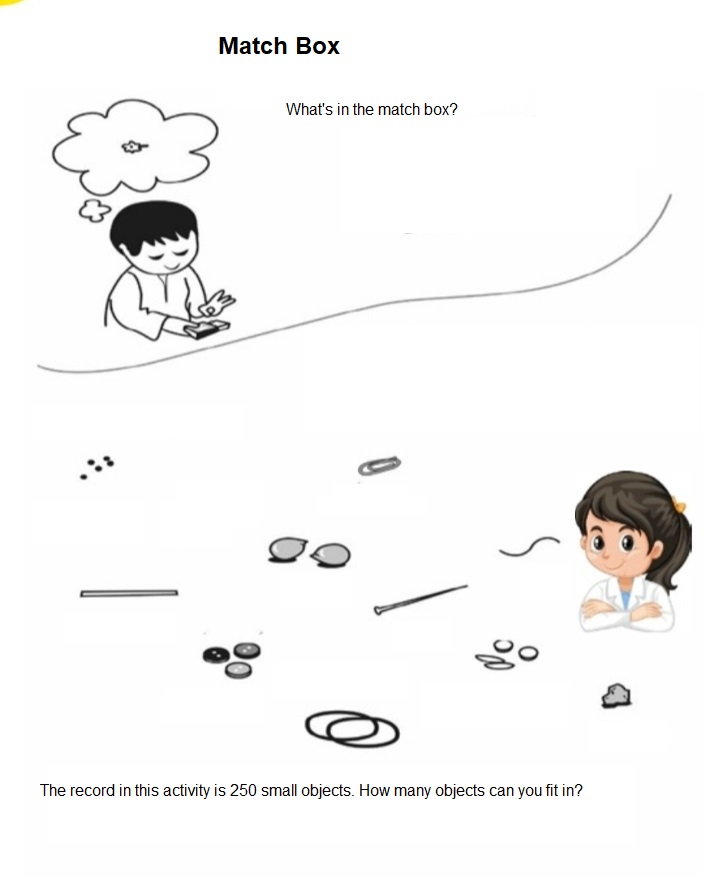
Basic Rocket Making
Materials:
- Paper
- Balloon
- Crayons
- Package rubber
- Pipette
- Rope
- Glue
- Tape
- Scissors
Construction:
- Fold the paper in half, draw a rocket, and cut it out.
- Open the fold and attach the pipette in the middle by using glue and tape.
- Fold it again and glue the edges of the rocket.
- Pass the rope through pipette.
- Pin the two ends of the rope on a proper place.
- Open the tail of the rocket and blow into it.
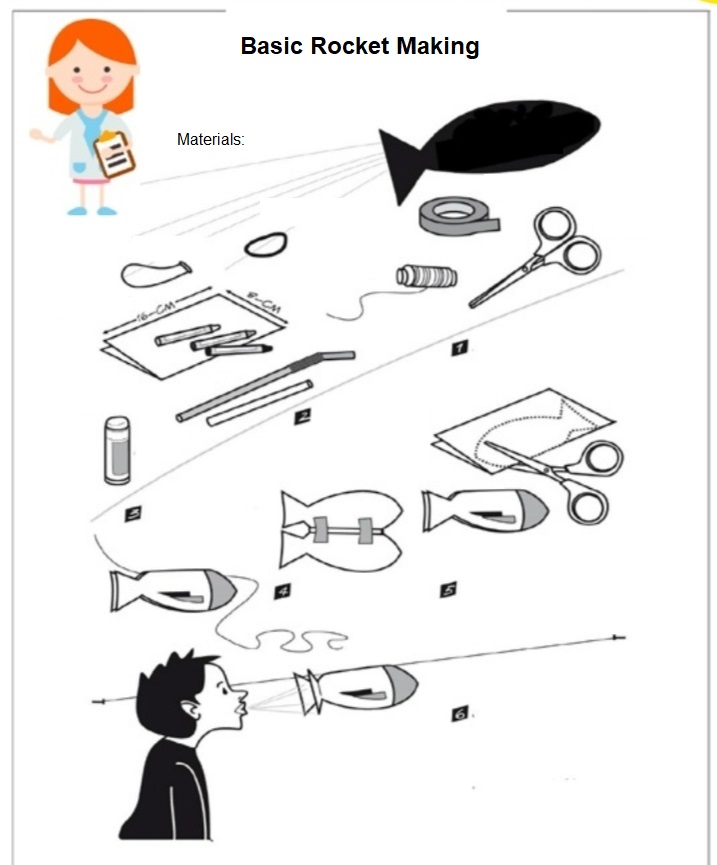
Moving Monkey
Materials:
- A paper monkey
- Package rubber
- Scissors
- Pipette (2cm)
- Small package rubber
- Ice cream stick
Construction:
- Stick down the pipette to ice cream stick by using package rubber.
- Cut the large package rubber.
- Pass it through pipette.
- Put the monkey on the stick.
- Create short vibrations by pulling the rubber from two ends.
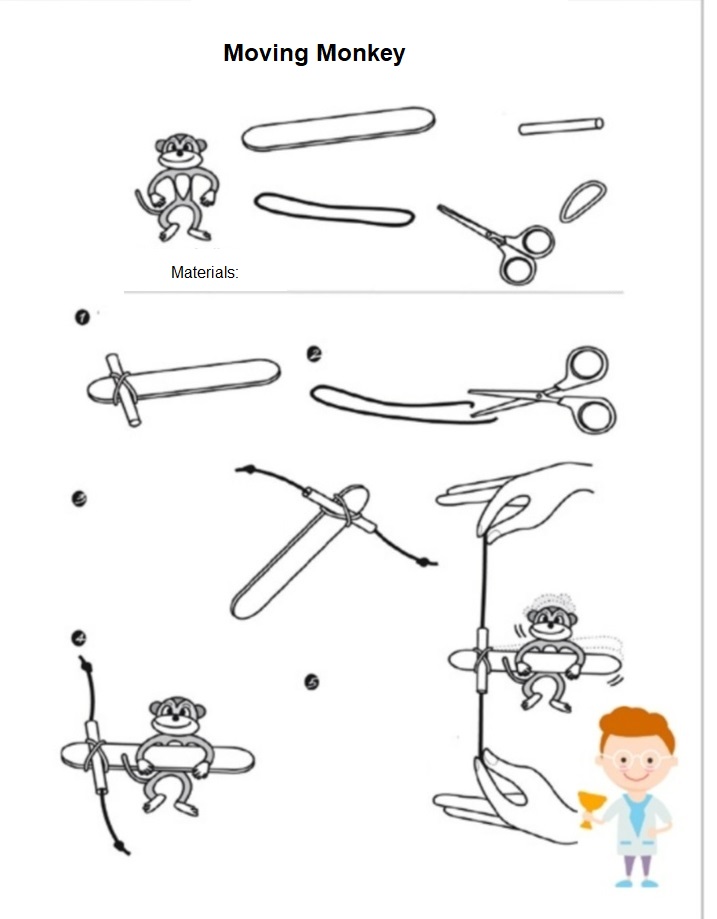
Dancing Pencils
Materials: 2 pencils (make sure they are not sharp) and one rubber band
Construction:
- Bring the pencils side by side.
- Bond them with band, it should hold the pencils tightly.
- Turn the pencils to opposite directions with band and unhold. You see the pencils are fighting with one another.
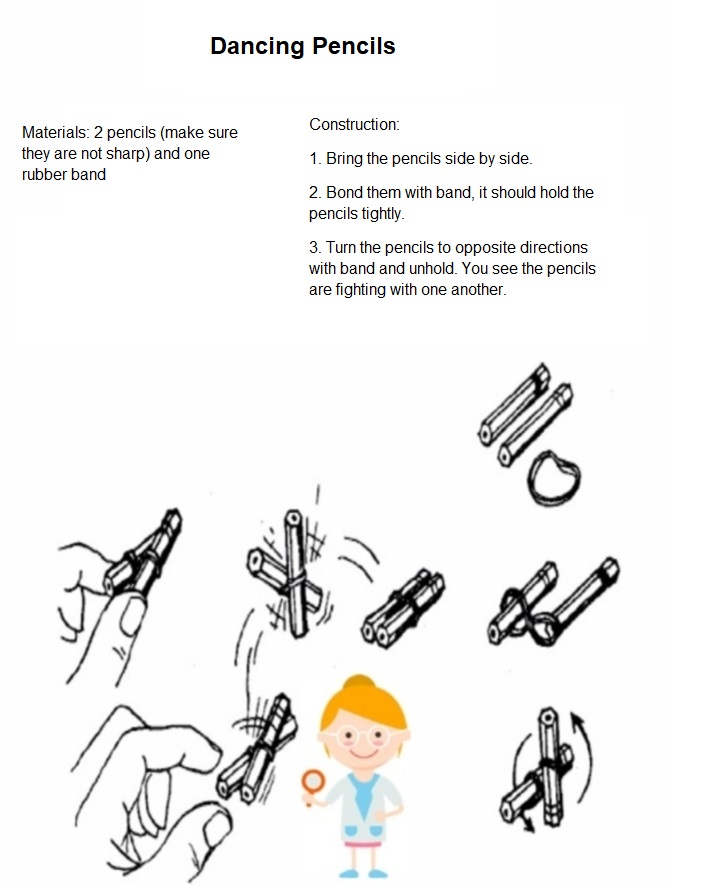
Cool Fingers
Materials:
- Plastic gloves
- Tape
- Pet bottle
- Scissors
Construction:
- Cut off the bottom of the plastic bottle.
- Stretch out the glove and robe it to the bottle.
- Tape the glove on the bottle.
- Drop the bottle into a cup full of water.
- As you push the bottle, the glove, taking the air, will begin to swell up.
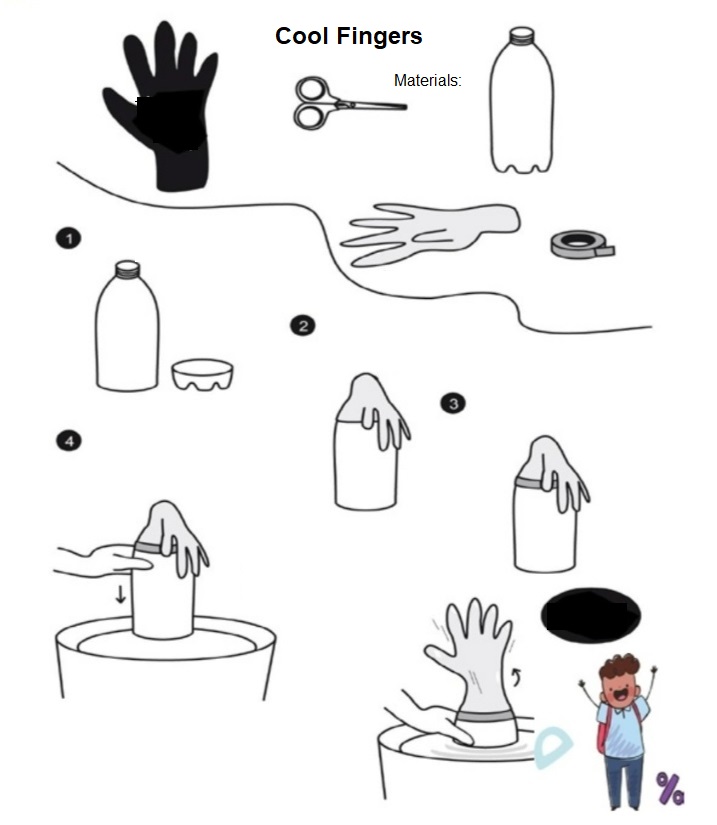
Rolling Match Box
Materials:
- 2 pictures
- Glue
- Tape
- Match Box
- A piece of cardboard
- 2 marbles
Construction:
- Wrap the match box with cardboard.
- Loosen it and take the match box out.
- Tape it and make a ring.
- Glue the pictures on two sides.
- Put the match box into the ring.
- Drop the marbles into the match box.
- Place the match box fully into the ring and leave it some curved place. It will roll with the movement of the marbles.
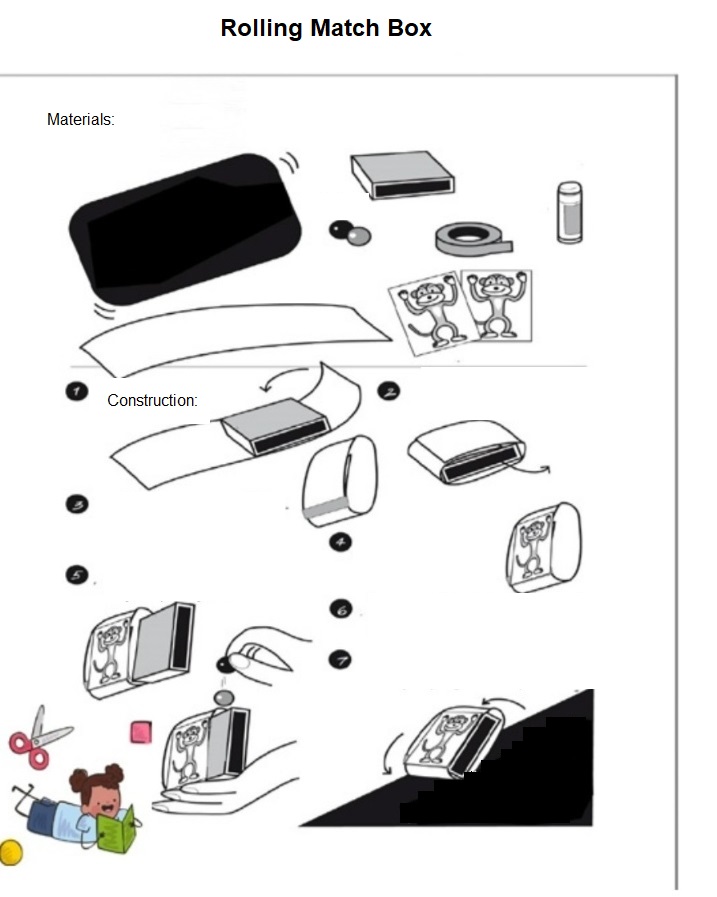
Balloon Shooting
Materials:
- Pipe (6cm)
- Balloon
- Tape
- Scissors
- Rope
Construction:
- Take the balloon and blow it up. Hold it without tieing.
- Ask a friend to hold the end of the rope.
- Pass the rope through pipe and tie its end to a pin.
- Tape the balloon on the pipe then let it free. The air inside the balloon will begin to come out of it.
- Balloon will move along the rope like a rocket until all the air goes out.
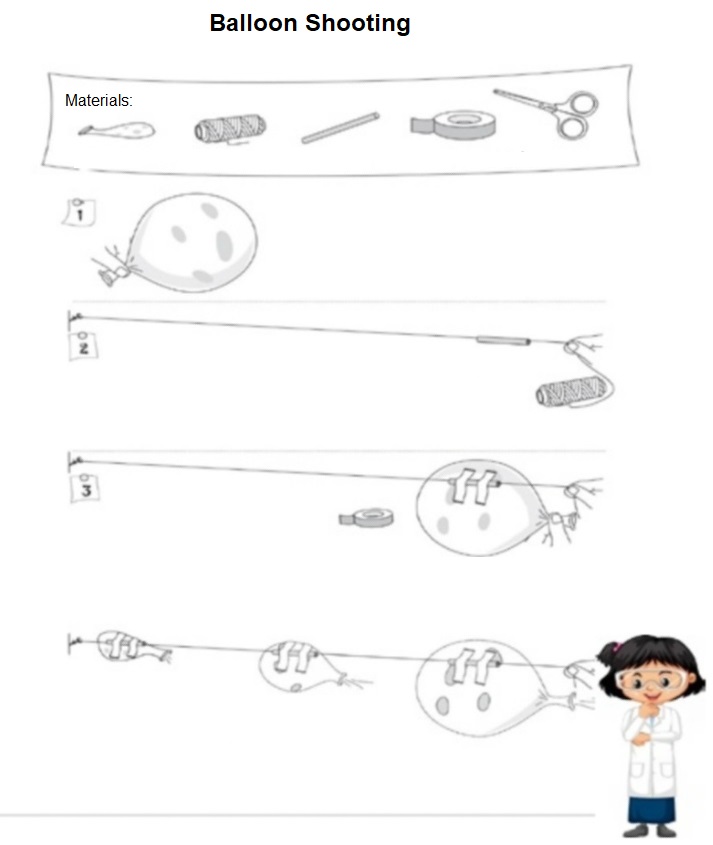
 Homeschool Craft and Art Craft Activities
Homeschool Craft and Art Craft Activities
